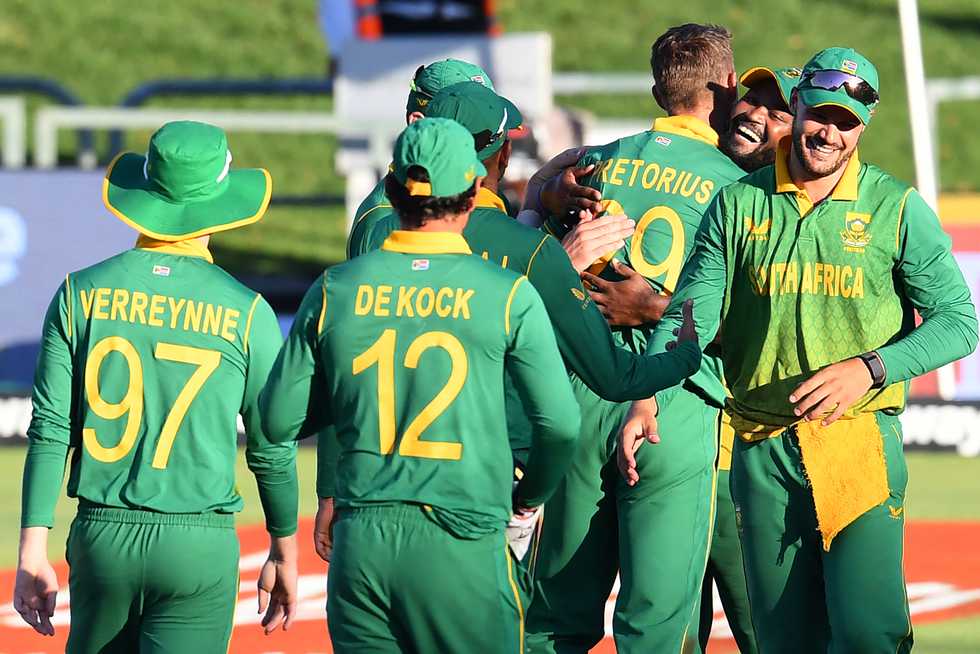
Bavuma and Boucher - The giants behind South Africa's success

Some people look at Temba Bavuma and see a cricketer. Others see a South African. Still others see a black South African cricketer. Kevin Pietersen famously said it isn't easy being him. He should try being Bavuma.
Particularly at a time when the world outside the dressing room seems to be trying to destroy much of what Bavuma and his teammates have achieved in recent months. So there was no surprise when a bent question about how easy or difficult it might be to captain South Africa was met with a straight answer.
"There's a lot of dynamics that you need to manage," Bavuma told an online press conference at Newlands on Sunday. "For me the biggest thing is trying to keep cricket the main focus amongst the guys. I hate to bring this up but it's been a challenging period for the team; for players, for particular members of management. There's been a lot of scrutiny surrounding the team and the organisation.
"To manage the conversations that happen within the changing room, to ensure that our energies are 100% geared towards performing out there, that's been the biggest challenge. It's been a big responsibility but it's also been a privilege. It's not easy leading a South African national team."
The unmentioned rhino in the room was Mark Boucher, whose disciplinary hearing on charges of gross misconduct is set to start on Wednesday. Boucher stands accused of nothing less than racism, that, if proven, could end his international coaching career - which after a damp start and a slow gathering of momentum, has caught fire in the shape of Test and ODI series victories against an India team who came to South Africa as outright favourites.
But those successes cannot stand in the way of justice being done. If Boucher is found guilty, there must be consequences. If he is considered guilty enough to warrant being fired, that must happen. If he is guilty but not terminally so, he will be deserving of a lesser sentence. If he is acquitted, so be it. In any eventuality, his record as a coach and what he might yet achieve in that capacity must not come into the equation.
CSA's board are divided on the issue. The remnants of the chronically dysfunctional structure, replaced in June by a majority independent board, are adamant Boucher must go. The rest either support Boucher or are taking the objective view and putting their trust in the disciplinary process. It's difficult to imagine the players aren't also conflicted. Some no doubt won't understand why he is in trouble. Others will want the matter cleared up, one way or the other, at the hearing and for this damaging darkness to go away.
The external tensions over Boucher, which have sparked ever more shrill and outrageous dialogue, for and against, on social media, make Bavuma all the more worthy of praise. Having delivered two half-centuries and three unbeaten knocks in the Test series, in which he topped the averages, he scored a century in the first ODI. The responsibility of hanging tough in the Test team's batting order against India - he featured in four of South Africa's nine half-century stands in the series - and of leading the ODI side would seem to have enhanced Bavuma's own game.
"I enjoy captaincy, and I guess that is the knock-off benefit that it has - it seems to have shown in my own performances," he said. "With captaincy there's a lot of thinking. I enjoy the tactical side of things. That flows into your own performance. I'm clearer as to what I'm trying to do. I'm always trying to assess the situation and come up with solutions and plan how to counter those situations."
Bavuma's ODI side not only played well, they played as if they had their eyes on a higher prize. And as if they were a happy team. How much of the credit for that belongs to Boucher? How much to Bavuma? And how much to a pair of leaders who, despite their obvious and less than obvious differences, have plenty in common?
We cannot know. But we do know that captain and coach were on the same page after South Africa squeaked to a





